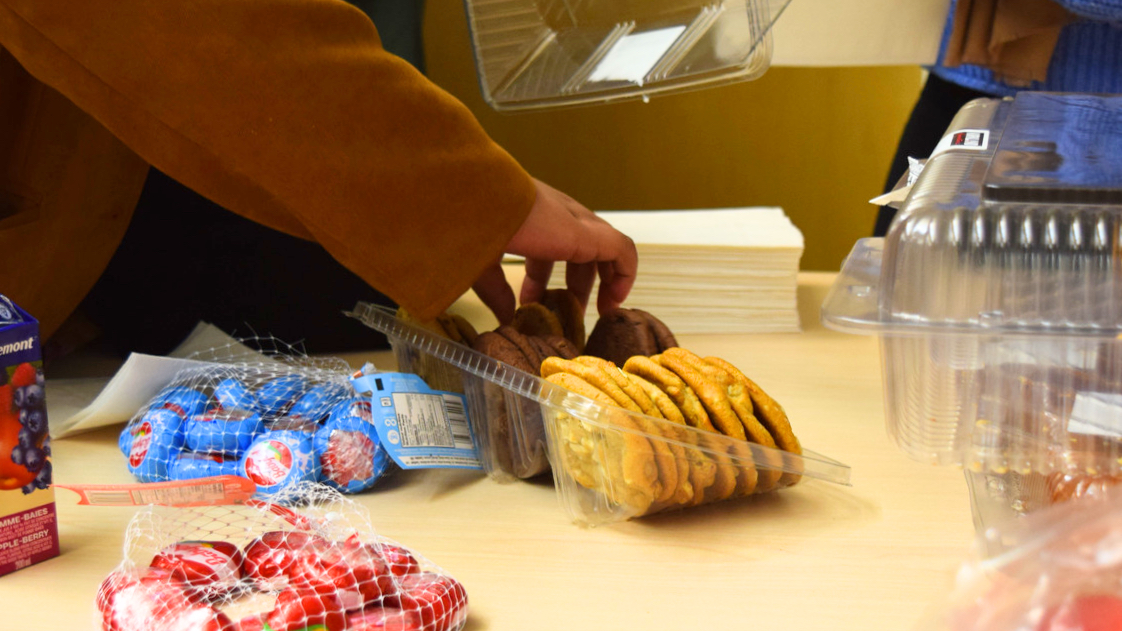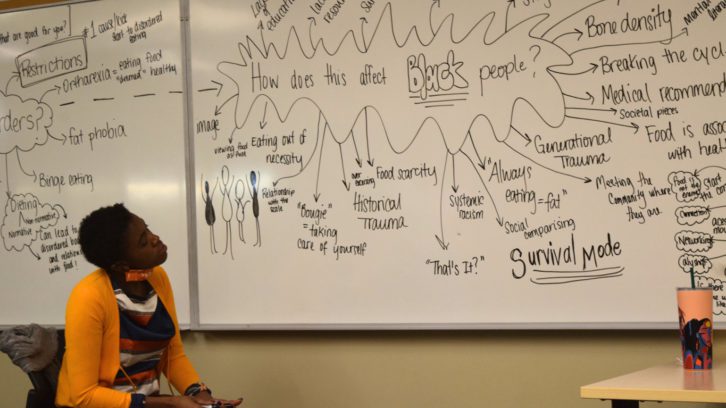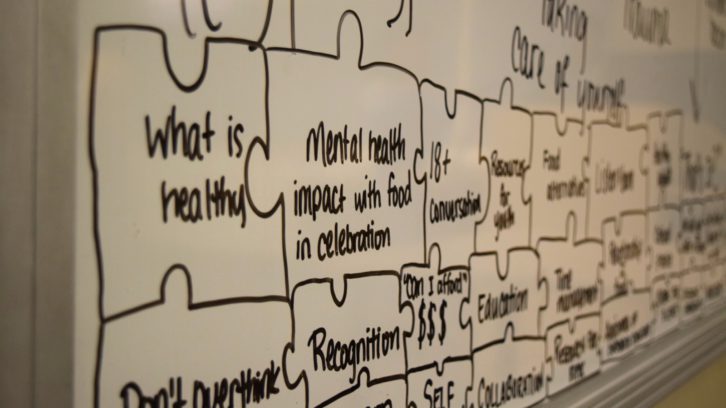Eating disorder support in works for Black people in Nova Scotia
Rising food insecurity highlights need for support

caption
A person reaches for a snack at the Eating Disorders: Not Just a White Folks' Problem event hosted by Eating Disorders Nova Scotia at SMU on Jan. 24, 2023.Eating Disorders Nova Scotia (EDNS) is creating support and services for Black communities in Halifax and beyond.
“It does not matter if we’re African Nova Scotian or African or Black or Caribbean,” said Amber Grosse from East Preston. “We greet each other by our weight first.”
Grosse coordinated an event called Eating Disorders: Not Just a White Folks’ Problem. It took place at St. Mary’s University on Jan. 24.
Fourteen community members attended, including post-secondary students and professionals. Most shared how growing up in a Black community shaped their relationships with food and their bodies.

caption
Amber Grosse looks up at a whiteboard at the Eating Disorders: Not Just a White Folks’ Problem event hosted by Eating Disorders Nova Scotia at SMU on Jan. 24, 2023.Research released in 2020 finds Black people are less likely to receive access to care although eating disorders can affect anyone.
The group discussed how cultural nuances make it harder to recognize eating disorders as a mental illness.
“It goes back to the historical trauma and the generational trauma,” Grosse said. She explained that eating disorders are not normalized within Black communities and even the word ‘disorder’ is taboo.
Those nuances go unrecognized by most healthcare providers, according to Mazella B. Fuller, a PhD clinical associate at Duke University in North Carolina. She co-authored the clinician’s guide Treating Black Women with Eating Disorders.
Fuller said that’s because most doctors with Western education lack the level of “cultural intelligence” and expertise to gauge Black eating disorders.
“There’s no way in the world anybody could do cultural-affirming treatment if they haven’t had some type of training,” said Fuller. Helping doctors understand Black people’s lived experiences, cultural nuances and different presentations of eating disorders can create more access.
Attendees at SMU voiced similar needs.

caption
Whiteboard drawing of notes on key takeaways from the event Eating Disorders: Not Just a White Folks’ Problem hosted by Eating Disorders Nova Scotia at SMU on Jan. 24, 2023.Their responses will inform a “closed support group” workshop EDNS aims to launch in the spring, according to program manager Debra Wells-Hopey.
It will provide tools to empower Black communities by removing barriers and increasing awareness — as food insecurity ties in with the cost of living crisis.
“There’s a huge correlation between food insecurity and having an eating disorder,” said Wells-Hopey.
Research published in 2020 finds adults who experience food insecurity are more likely to demonstrate eating disorder behaviours.
“We’re holding this event to start generating conversation about these issues,” said EDNS executive director Shaleen Jones.
N.S. Health community outreach worker Kyiaisha Benton attended the event to learn and bring better support to the people she works with.
She said hearing other Black people relay their struggles with eating disorders helped her understand her own personal experiences, especially with how “family dynamics” come into play.
“We don’t talk about this topic a lot, especially relating to marginalized communities,” said Benton.
“It gives me hope being here.”
About the author
Chase Fitzgerald
Chase is a fourth-year journalism student from Mississauga, Ontario.
